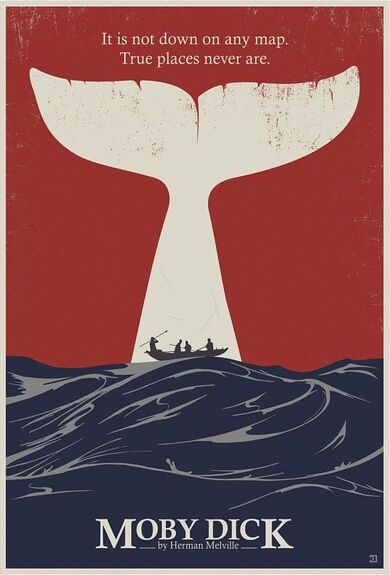The Encantadas: Sketch Third
Rock Rodondo
A dangerous and dreadful place,
To which nor fish nor fowl did once approach,
But yelling meaws with sea-gulls hoars and bace
And cormoyrants with birds of ravenous race,
Which still sit waiting on that dreadful clift.”
“With that the rolling sea resounding soft
In his big base them fitly answered,
And on the Rock, the waves breaking aloft,
A solemn meane unto them measured.” “Then he the boteman bad row easily,
And let him heare some part of that rare melody.” “Suddeinly an innumerable flight
Of harmefull fowles about them fluttering cride,
And with their wicked wings them oft did smight
And sore annoyed, groping in that griesly night.” “Even all the nation of unfortunate
And fatal birds about them flocked were.”
To go up into a high stone tower is not only a very fine thing in itself, but the very best mode of gaining a comprehensive view of the region round about. It is all the better if this tower stand solitary and alone, like that mysterious Newport one, or else be sole survivor of some perished castle.
Now, with reference to the Enchanted Isles, we are fortunately supplied with just such a noble point of observation in a remarkable rock, from its peculiar figure called of old by the Spaniards, Rock Rodondo, or Round Rock. Some two hundred and fifty feet high, rising straight from the sea ten miles from land, with the whole mountainous group to the south and east, Rock Rodondo occupies, on a large scale, very much the position which the famous Campanile or detached Bell Tower of St. Mark does with respect to the tangled group of hoary edifices around it.
Ere ascending, however, to gaze abroad upon the Encantadas, this sea tower itself claims attention. It is visible at the distance of thirty miles, and, fully participating in that enchantment which pervades the group, when first seen afar invariably is mistaken for a sail. Four leagues away, of a golden, hazy noon, it seems some Spanish admiral’s ship, stacked up with glittering canvas. Sail ho! Sail ho! Sail ho! from all three masts. But coming nigh, the enchanted frigate is transformed apace into a craggy keep.
My first visit to the spot was made in the gray of the morning. With a view of fishing, we had lowered three boats, and, pulling some two miles from our vessel, found ourselves just before dawn of day close under the moonshadow of Rodondo. Its aspect was heightened, and yet softened, by the strange double twilight of the hour. The great full moon burnt in the low west like a half-spent beacon, casting a soft mellow tinge upon the sea like that cast by a waning fire of embers upon a midnight hearth; while along the entire east the invisible sun sent pallid intimations of his coming. The wind was light, the waves languid; the stars twinkled with a faint effulgence; all nature seemed supine with the long night-watch, and half-suspended in jaded expectation of the sun. This was the critical hour to catch Rodondo in his perfect mood. The twilight was just enough to reveal every striking point, without tearing away the dim investiture of wonder.
From a broken, stairlike base, washed as the steps of a water palace by the waves, the tower rose in entablatures of strata to a shaven summit. These uniform layers, which compose the mass, form its most peculiar feature. For at their lines of junction they project flatly into encircling shelves, from top to bottom, rising one above another in graduated series. And as the eaves of any old barn or abbey are alive with swallows, so were all these rocky ledges with unnumbered seafowl. Eaves upon eaves, and nests upon nests. Here and there were long birdlime streaks of a ghostly white staining the tower from sea to air, readily accounting for its saillike look afar. All would have been bewitchingly quiescent were it not for the demoniac din created by the birds. Not only were the eaves rustling with them, but they flew densely overhead, spreading themselves into a winged and continually shifting canopy. The tower is the resort of aquatic birds for hundreds of leagues around. To the north, to the east, to the west, stretches nothing but eternal ocean; so that the man-of-war hawk coming from the coasts of North America, Polynesia, or Peru, makes his first land at Rodondo. And yet, though Rodondo be terra firma, no land bird ever lighted on it. Fancy a red robin or a canary there! What a falling into the hands of the Philistines when the poor warbler should be surrounded by such locust-flights of strong bandit birds, with long bills cruel as daggers.
I know not where one can better study the natural history of strange seafowl than at Rodondo. It is the aviary of Ocean. Birds light here which never touched mast or tree; hermit-birds, which ever fly alone; cloud-birds, familiar with unpierced zones of air.
Let us first glance low down to the lowermost shelf of all, which is the widest, too, and but a little space from high-water mark. What outlandish beings are these? Erect as men, but hardly as symmetrical, they stand all round the rock like sculptured caryatides, supporting the next range of eaves above. Their bodies are grotesquely misshapen, their bills short, their feet seemingly legless; while the members at their sides are neither fin, wing, nor arm. And truly neither fish, flesh, nor fowl is the penguin; as an edible, pertaining neither to Carnival nor Lent; without exception the most ambiguous and least lovely creature yet discovered by man. Though dabbling in all three elements, and indeed possessing some rudimental claims to all, the penguin is at home in none. On land it stumps; afloat it sculls; in the air it flops. As if ashamed of her failure, Nature keeps this ungainly child hidden away at the ends of the earth, in the Straits of Magellan, and on the abased sea-story of Rodondo.
But look, what are yon woebegone regiments drawn up on the next shelf above? what rank and file of large strange fowl? what sea Friars of Orders Gray? Pelicans. Their elongated bills, and heavy leathern pouches suspended thereto, give them the most lugubrious expression. A pensive race, they stand for hours together without motion. Their dull, ashy plumage imparts an aspect as if they had been powdered over with cinders. A penitential bird, indeed, fitly haunting the shores of the clinkered Encantadas, whereon tormented Job himself might have well sat down and scraped himself with potsherds.
Higher up now we mark the gony, or gray albatross, anomalously so called, an unsightly, unpoetic bird, unlike its storied kinsman, which is the snow-white ghost of the haunted Capes of Hope and Horn.
As we still ascend from shelf to shelf, we find the tenants of the tower serially disposed in order of their magnitude: gannets, black and speckled haglets, jays, sea hens, sperm-whale birds, gulls of all varieties—thrones, princedoms, powers, dominating one above another in senatorial array; while, sprinkled over all, like an ever-repeated fly in a great piece of broidery, the stormy petrel or Mother Cary’s chicken sounds his continual challenge and alarm. That this mysterious hummingbird of ocean—which, had it but brilliancy of hue, might, from its evanescent liveliness, be almost called its butterfly, yet whose chirrup under the stern is ominous to mariners as to the peasant the deathtick sounding from behind the chimney jamb—should have its special haunt at the Encantadas, contributes, in the seaman’s mind. not a little to their dreary spell.
As day advances the dissonant din augments. With ear-splitting cries the wild birds celebrate their matins. Each moment, flights push from the tower and join the aerial choir hovering overhead, while their places below are supplied by darting myriads. But down through all this discord of commotion I hear clear, silver, buglelike notes unbrokenly falling, like oblique lines of swift-slanting rain in a cascading shower. I gaze far up, and behold a snowwhite angelic thing with one long, lancelike feather thrust out behind. It is the bright, inspiriting chanticleer of ocean, the beauteous bird, from its bestirring whistle of musical invocation fitly styled the “boatswain’s mate.”
The winged, life-clouding Rodondo had its full counterpart in the finny hosts which people the waters at its base. Below the water line, the rock seemed one honeycomb of grottoes, affording labyrinthine lurking places for swarms of fairy fish. All were strange, many exceedingly beautiful, and would have well graced the costliest glass globes in which goldfish are kept for a show. Nothing was more striking than the complete novelty of many individuals of this multitude. Here hues were seen as yet unpainted, and figures which are unengraved.
To show the multitude, avidity, and nameless fearlessness and tameness of these fish, let me say that often, marking through clear spaces of water—temporarily made so by the concentric dartings of the fish above the surface—certain larger and less unwary wights which swam slow and deep, our anglers would cautiously essay to drop their lines down to these last. But in vain; there was no passing the uppermost zone. No sooner did the hook touch the sea, than a hundred infatuates contended for the honor of capture. Poor fish of Rodondo! in your victimized confidence, you are of the number of those who inconsiderately trust, while they do not understand, human nature.
But the dawn is now fairly day. Band after band, the seafowl sail away to forage the deep for their food. The tower is left solitary, save the fish-caves at its base. Its birdlime gleams in the golden rays like the whitewash of a tall lighthouse, or the lofty sails of a cruiser. This moment, doubtless, while we know it to be a dead desert rock, other voyagers are taking oaths it is a glad populous ship.
But ropes now, and let us ascend. Yet soft, this is not so easy.


